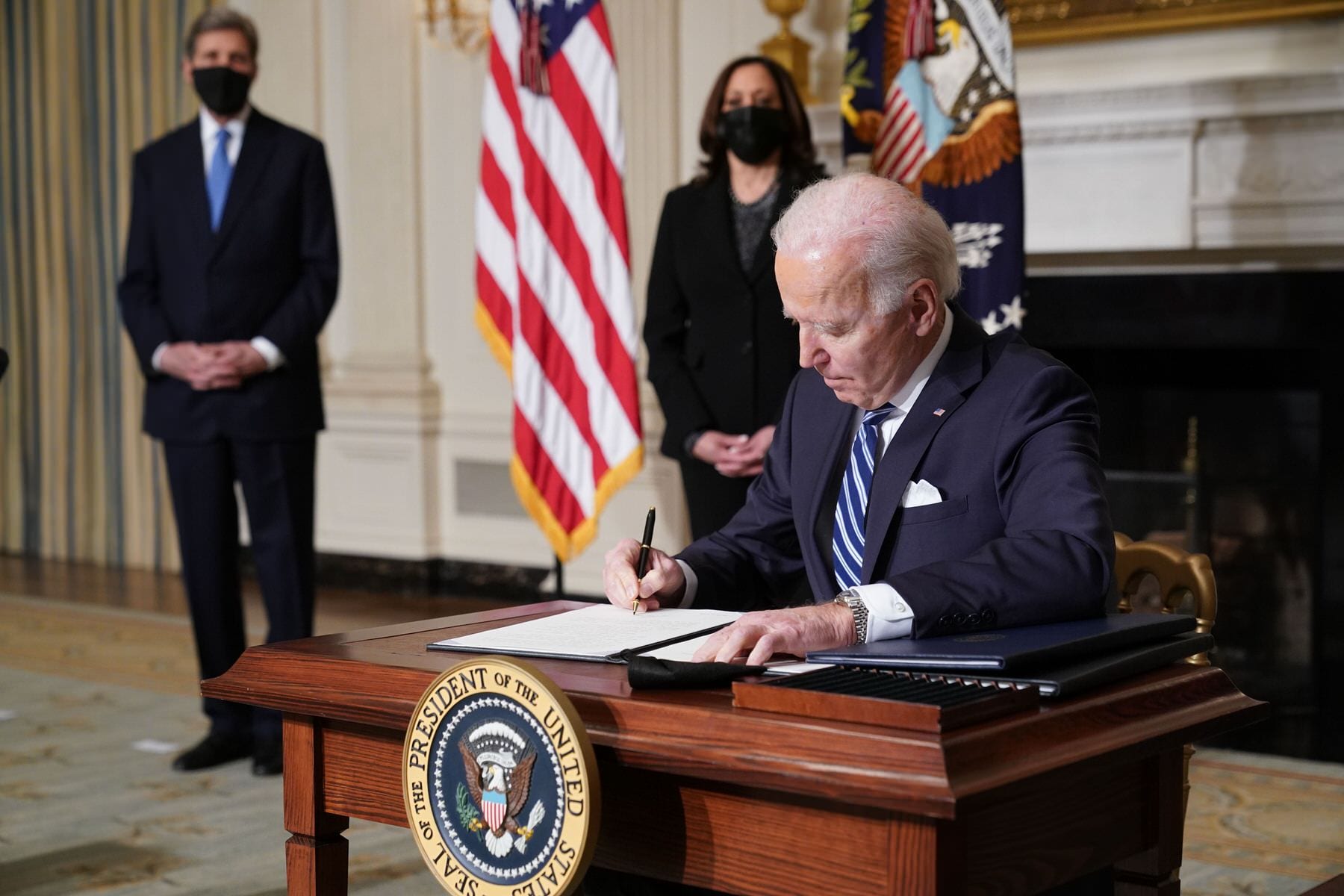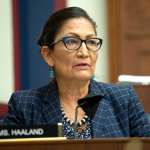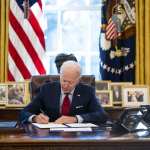President Joe Biden marked his first week in office by releasing a plan to address climate change that directs federal agencies to craft programs and policies with environmental justice in mind, underscoring the disproportionate impact of pollution and energy extraction on economically disadvantaged communities.
In three executive orders signed Wednesday, Biden outlined an overarching climate agenda intended to enable the United States to reach zero net carbon emissions by 2050. One directs all federal agencies to consider and address the “disproportionate health, environmental, economic, and climate impacts on disadvantaged communities” that are often near landfills, factories, ports, power plants and other infrastructure projects with deleterious environmental impacts.
Asthma, for example, can be caused or exacerbated by environmental factors such as pollution. Black, Latinx and Indigenous people grapple with the long-term respiratory disease at disproportionate rates.
Ahead of the signings, Biden called climate change an “existential threat,” citing floods that have ravaged the Midwest and wildfires that forced thousands to evacuate in California. He noted that exposure to air pollution can worsen outcomes for those with the COVID-19 virus and said climate policy could create well-paying clean energy jobs.
“In my mind, we’ve already waited too long to deal with this climate crisis, we can’t wait any longer,” Biden said.
Natural Resources Defense Council President Mitch Bernard said Biden’s climate package will address decades of “environmental racism” because it “puts environmental justice and equity front and center.”
“For far too long, the low-income communities and people of color who’ve done the least to contribute to the climate crisis have been the very ones suffering the most,” Bernard said in a statement.
Biden’s administration will also double offshore wind energy production and pause all new oil and natural gas leases on non-tribal public lands and in public waters, as well as review all existing leases. It aims to conserve at least 30 percent of the country’s lands and oceans by 2030, aided by a new Civilian Climate Corps that will also create conservation jobs. The Department of Agriculture will ask farmers for input about “climate smart” practices. Scientists will be protected from political interference, and a presidential council of scientific advisers will be reestablished to consult on policy across departments.
The executive orders do not restrict energy production on tribal lands. Biden said his Interior Department will work with Native American leaders to develop and manage sources of renewable energy. Biden has nominated Rep. Deb Haaland of New Mexico to head the department, which oversees 46 million acres of tribal land. If confirmed, Haaland, an enrolled member of the Laguna Pueblo tribe, will be the first Native American to hold a Cabinet-level position.
Kendra Pinto, an environmental activist and Navajo Nation member from New Mexico, said Wednesday that the “checkerboard” of state, federal and tribal regulations that govern energy production near her home has resulted in 115,000 of the state’s residents living within one mile of an oil or gas extraction site, herself included.
“I live in a community that is directly impacted,” Pinto said. “I look forward to having a seat at the table in the future.”
Agencies will “leverage the federal government’s footprint and buying power” by procuring carbon-pollution-free electricity and buying zero-emission vehicles that are made in the United States by workers protected by prevailing wage and benefits guidelines. The executive actions “reaffirm that agencies should work to ensure that any jobs created with funds to address the climate crisis are good jobs with a choice to join a union,” the White House said.
Gina McCarthy, an Environmental Protection Agency administrator during the Obama administration whom Biden tapped to lead domestic climate policy as the first-ever White House climate adviser, said the federal government will be sending “signals to the marketplace” that clean energy can compete with fossil fuels.
“This is going to be a signal setter, the way the federal government ought to set, on what our values are,” McCarthy said.
Biden’s executive orders also provide a blueprint for how his administration will work to prioritize combating climate change in its foreign and defense policy. The director of national intelligence will prepare a report on the security implications of climate change. The State Department will ask the Senate to sign off on the Kigali Amendment to the Montreal Protocol, a global pact to reduce the creation of climate-warming carbons that the United States signed in 2016 but has yet to ratify. The agreement was negotiated by McCarthy and John Kerry, a former secretary of state to President Barack Obama whom Biden has installed as the White House’s first-ever climate envoy overseeing international policy.






